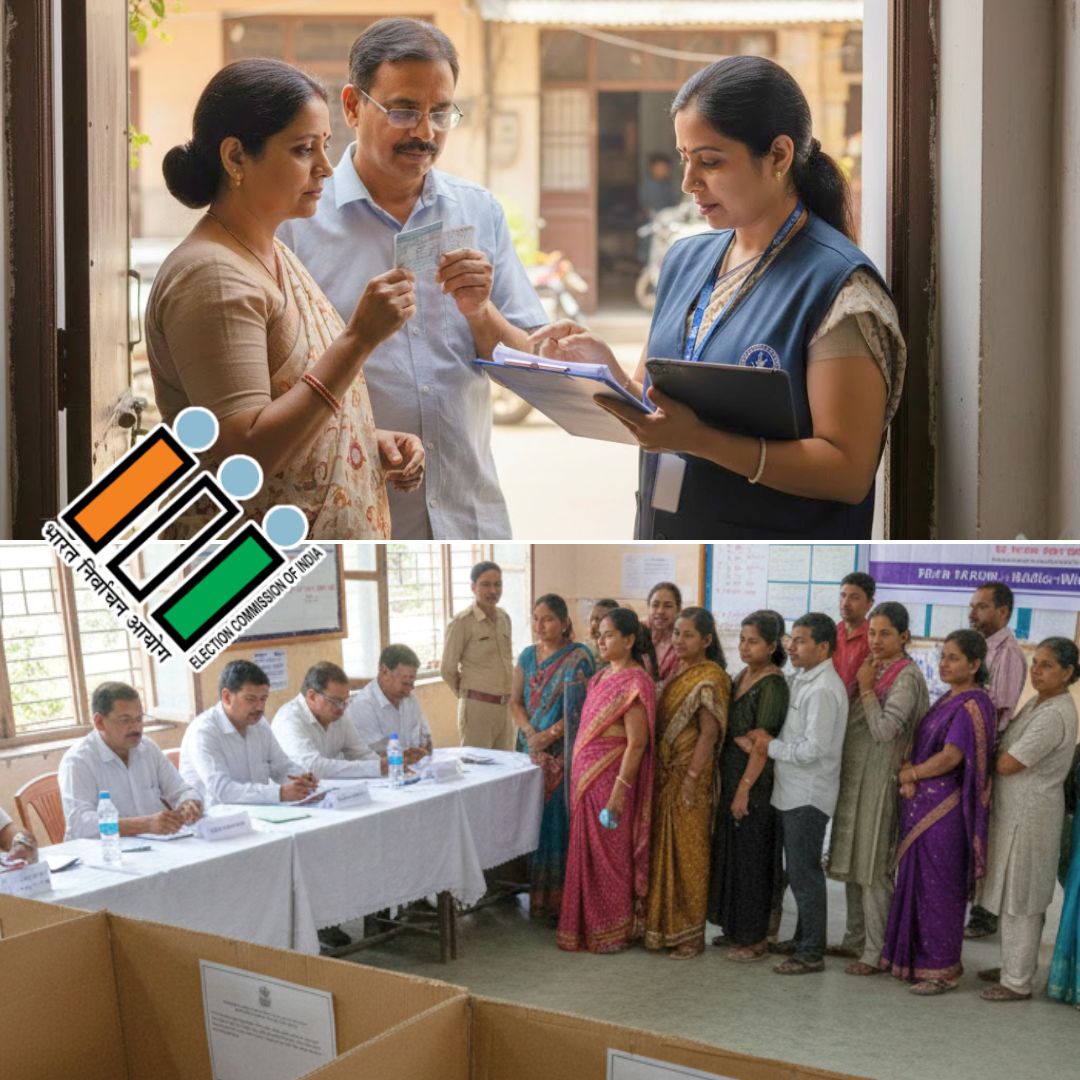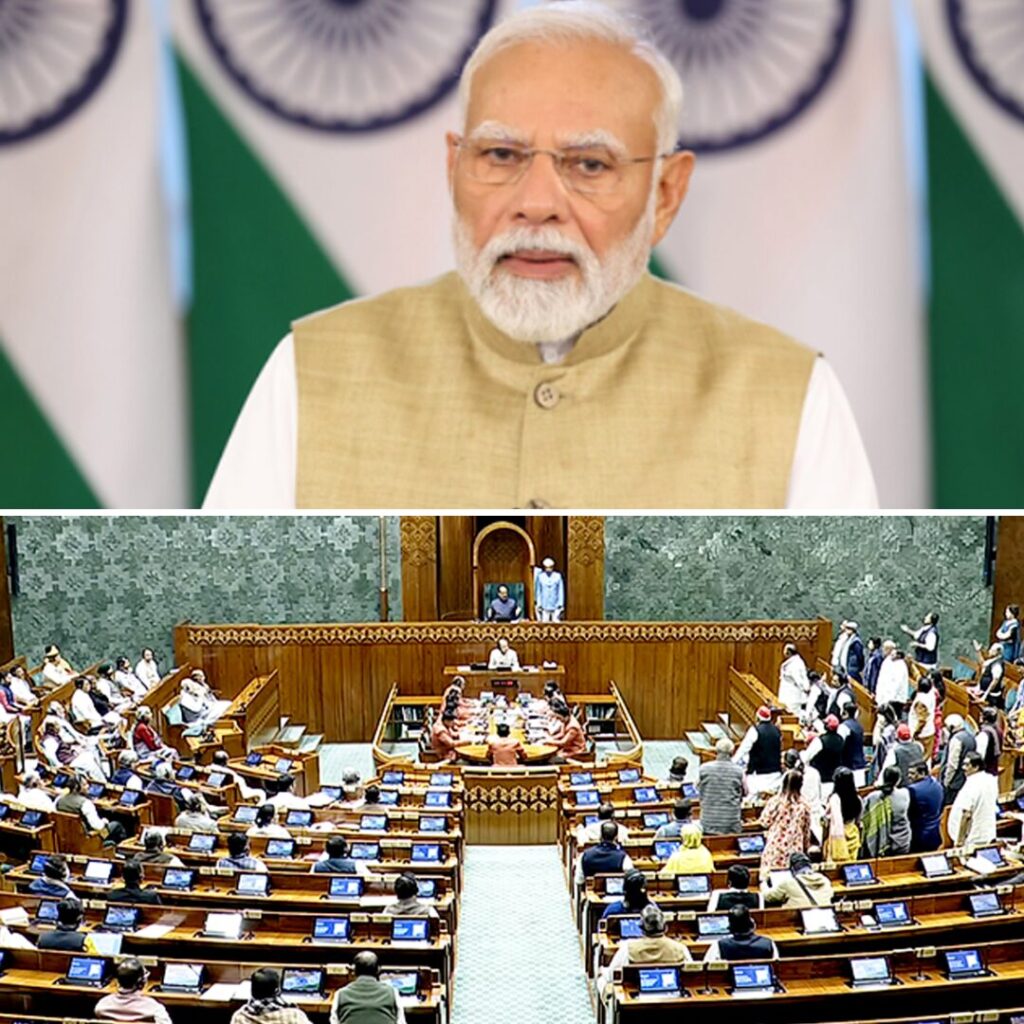India is undergoing its Special Intensive Revision (SIR) of electoral rolls, a large-scale door-to-door exercise led by Booth Level Officers to verify, update, and cleanse voter lists across multiple states ahead of key elections.
Covering over 51 crore voters in 12 states and union territories, the process aims to remove duplicates and incorrect entries while adding new eligible voters, ensuring a transparent and accurate voting registry.
While the Election Commission defends it as legally mandated and vital for democracy, opposition parties raise concerns over its potential political impact and implementation challenges.
Intensive Verification for an Error-Free Voter Roll
The Special Intensive Revision is a constitutionally backed exercise authorised under Article 324 and the Representation of the People Act, 1950, designed for comprehensive house-to-house verification of voter entries beyond routine annual updates.
Booth Level Officers distribute pre-filled enumeration forms to every elector, confirming their details, residence, and eligibility. It updates electoral databases with physical verification rather than relying solely on self-reports.
After a successful pilot in Bihar that resulted in 47 lakh deletions and addition of new voters, it is now being extended to states like Uttar Pradesh, West Bengal, Tamil Nadu, Kerala, and others for enhanced electoral integrity.
Political Debate Around SIR
The SIR has become politically contentious, with opposition parties including the Congress, Trinamool Congress, and DMK alleging it is aimed at disenfranchising minorities, migrants, and opposition supporters through hasty deletions and compressed timelines.
West Bengal Chief Minister Mamata Banerjee wrote a sharp letter to Chief Election Commissioner Gyanesh Kumar raising two “disturbing” concerns. She criticised the CEO’s proposal to outsource data entry work for the ongoing Special Intensive Revision, arguing existing staff can handle it and questioning any political motives.
Demonstrations and court petitions have emerged in several states opposing the exercise. Meanwhile, the Election Commission, led by Chief Election Commissioner, insists the process strengthens democracy by maintaining “pure electoral rolls” essential for free and fair elections. Union Home Minister Amit Shah supports the move, dismissing criticism as politically motivated.

Modern Technology Meets Traditional Democracy
The Election Commission has integrated digital tools such as the Voter Helpline, BLO app, and real-time dashboards to streamline the massive verification process, allowing voters to check status, update information online and communicate directly with Booth Level Officers.
Document verification has been made more inclusive by accepting a broad range of IDs including Aadhaar, ration cards, and voter ID proofs. The SIR reflects a balance between technological innovation and the sensitive ground realities of ensuring every eligible citizen is enfranchised without errors or exclusions.
What is the Special Intensive Revision (SIR)?
The Special Intensive Revision, or SIR, is a large-scale voter list update exercise conducted by the Election Commission of India. It involves Booth Level Officers visiting every home to check, correct, add, or remove voter details.
Unlike routine annual updates, SIR is a thorough, door-to-door review done when voter lists need deeper verification.
Its purpose is to ensure the voter rolls are accurate, free from duplicates or dead voters, and include all eligible citizens, especially new voters. SIR is supported by the Constitution and election laws to maintain clean and trustworthy electoral rolls.
How Will SIR Affect Elections and Voters?
SIR impacts elections by creating an accurate and trustworthy voter list, essential to fair and transparent voting. For voters, it means their details are verified and corrected if needed, helping ensure everyone’s vote counts only once.
It may add new eligible voters (like young adults) and remove ineligible ones (such as deceased people or duplicates). However, the process can also create concern if eligible voters are mistakenly left off the list or face documentation hurdles. Good communication and careful verification are vital to protect voters’ rights.
Why is the SIR Happening Now?
The SIR is happening now because voter rolls in many states have not been fully updated in years, and rapid population changes like migration and new voters have created inaccuracies. The Election Commission wants to avoid issues like duplicate entries or people who can no longer vote remaining on lists.
Article 324 of the Constitution and election laws empower the Commission to carry out this exercise to ensure elections remain free and fair. The current political climate and upcoming elections also add urgency to maintaining clean electoral rolls.
Deadlines and What Happens if You Miss Them
The Special Intensive Revision (SIR) started on November 4, 2025, and the house-to-house enumeration phase will end on December 4, 2025. During this time, Booth Level Officers (BLOs) visit homes to collect filled Enumeration Forms.
The draft electoral roll, reflecting these updates, will be published on December 9, 2025. After that, from December 9 to January 8, 2026, voters can file claims and objections, with hearings continuing until January 31, 2026.
If a voter misses the December 4 deadline, their details might not appear in the draft list initially. However, they can still apply using Form 6 during the claims and objections period, though this requires attending hearings and proving eligibility. Missing deadlines without follow-up can risk being left off the final list and losing voting rights in the next elections. Electors are encouraged to engage early to secure their place.
The Logical Indian’s Perspective
The Special Intensive Revision is crucial to strengthening India’s democracy by cleaning voter lists and ensuring every legitimate voter’s voice counts. However, the exercise must be implemented with utmost transparency and care to prevent any form of exclusion or misuse that erodes trust.
Political and administrative stakeholders should uphold transparency, support voter education, and ensure that technology aids rather than impedes access to voting rights.












